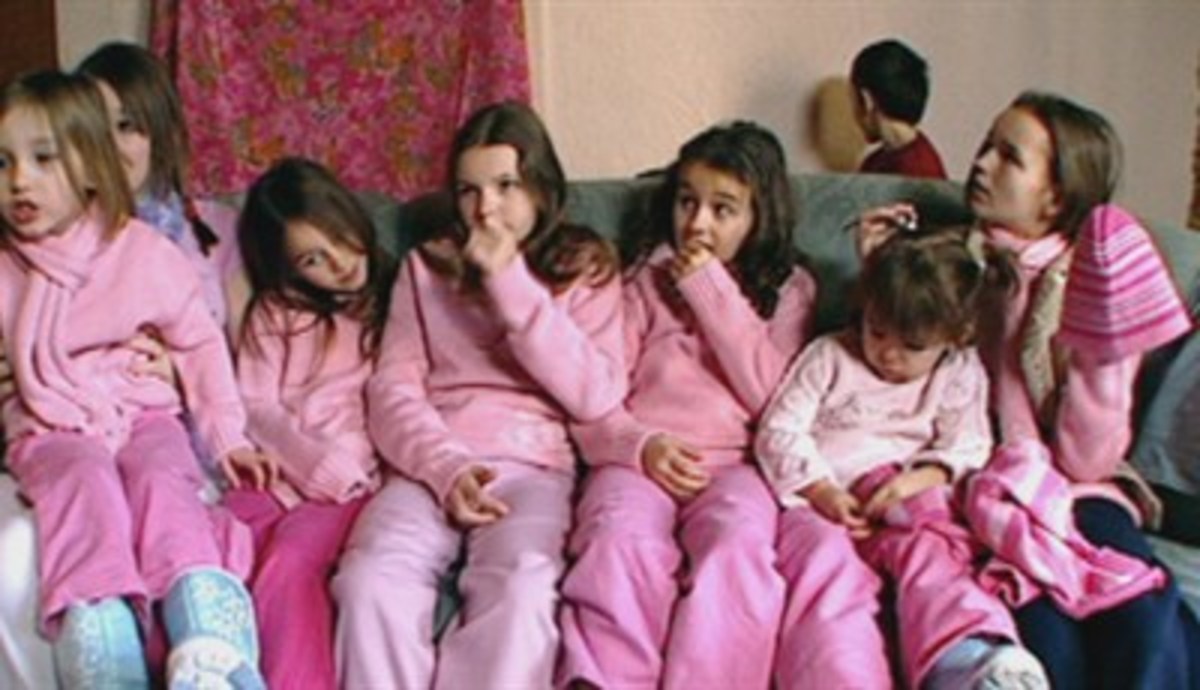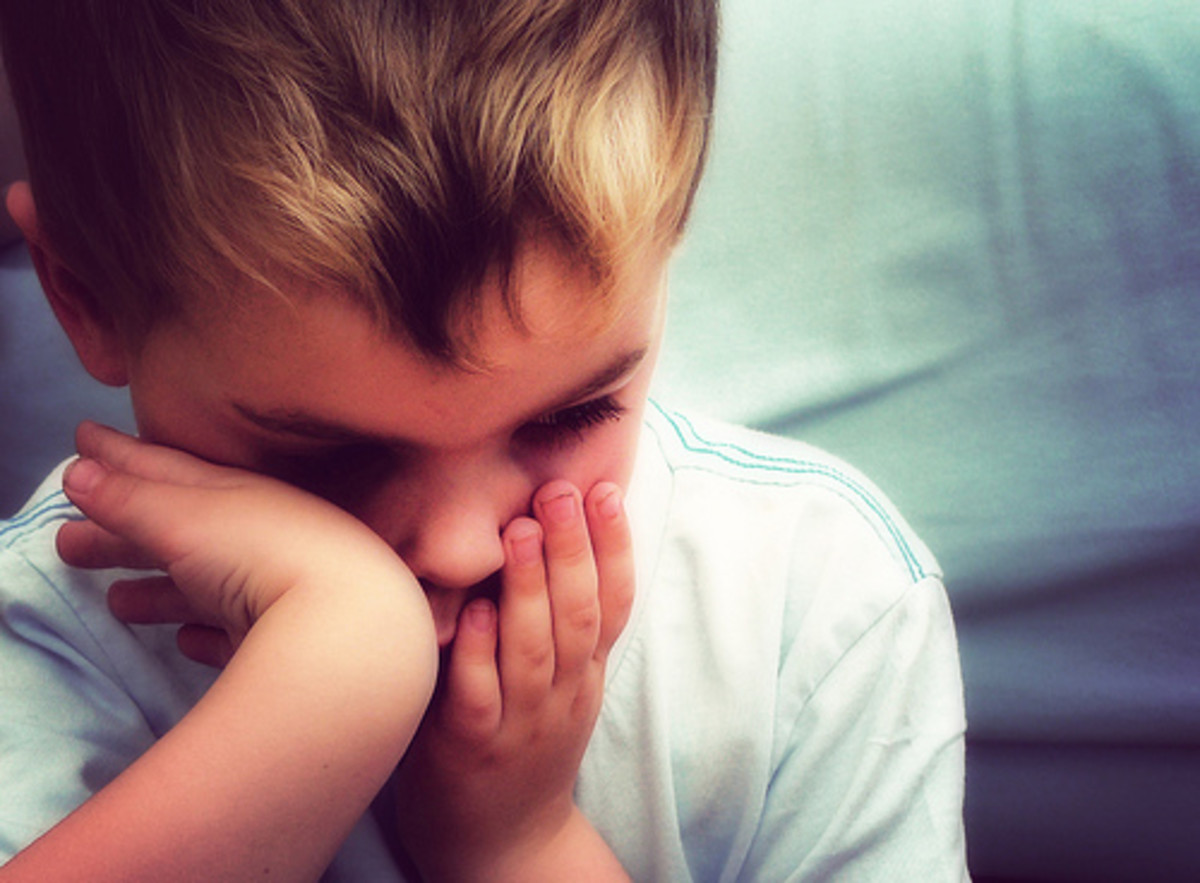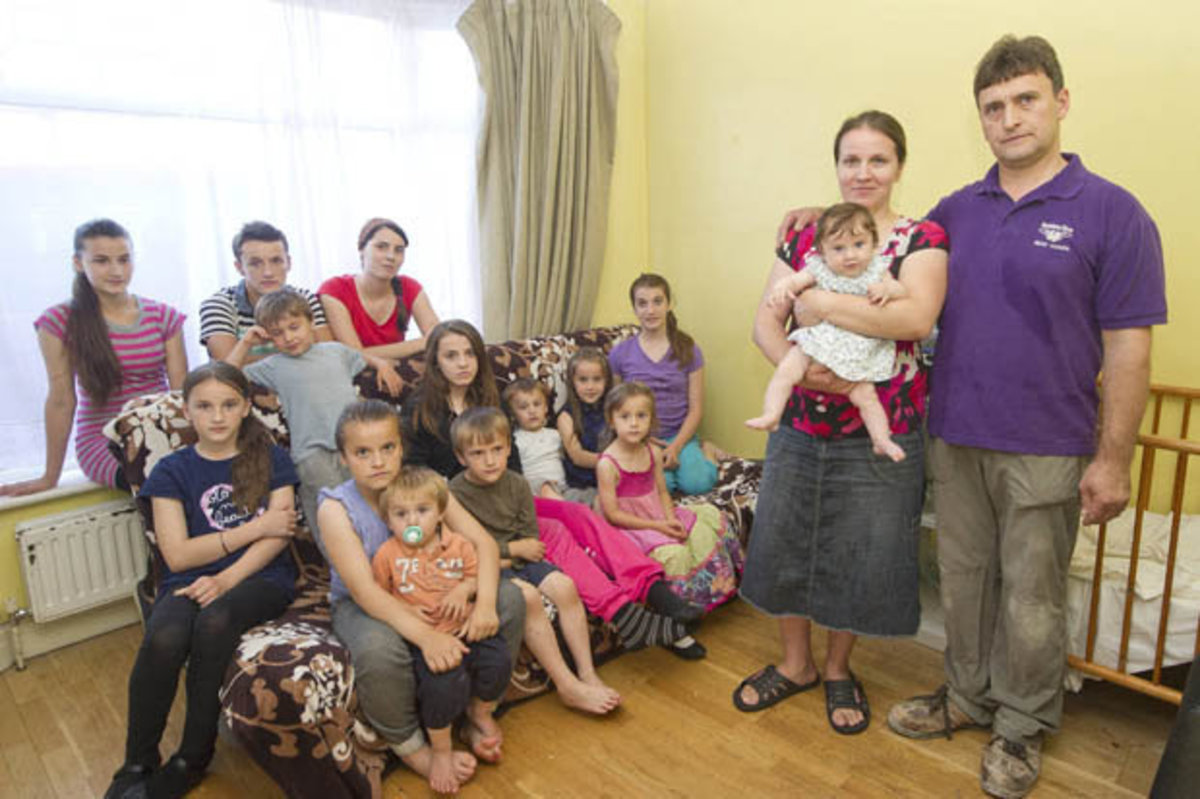Children From Large Families Tend To Raise And Support Themselves In Addition To Being Left To Their Own Devices





















HELL, Do The Best YOU Can, I Am UNABLE To Help YOU!
The family is one of the most important, if not the most important, societal institutions. It is the familial environment where one receives nurturance, care, and encouragement. Parents financially provide for their children in terms of necessities and luxuries. Families are there for each other and parents are the bulwark of the family.
Families come in different sizes-small, medium, medium large, large, and very large. The definition of the aforementioned size families varies from person to person and each family group. A person from a small family may portend that a family of three children is a large family while a person from a large family may consider a family of four children to be a small family. Each family size has its own different culture, mores, and a milieu of being.
A person's attitude and outlook in life are oftentimes influenced by the type of family size he/she comes from whether it is small, medium, medium large, large , or very large. Varied family sizes will eventually influence the type of parent such a person becomes. A person's family size of origin also is highly influential as to how many children he/she will have.
The large family is an entirely different entity from either the small and/or medium family. The working definition of the large family in the context of this hub will include the medium large family of 5 children, the large family of 6-7 children, and the very large family of 7+ children. Not all large families are monolithic of course. The status of the large family can be quite varied.
Quite a few large families can be classified as socioeconomically affluent. Children in such families are well cared for by their parents. They also have amenities such as privacy and their own rooms. Their parents furthermore have help to raise their children such as au pairs and nannies. Because these children are affluent, they can travel, pursue cultural and intellectual activities. They are more likely to pursue tertiary education with ease because of monies allotted.
Then there are some large families that can be classified as middle to upper middle income. Children in such families lead a somewhat comfortable life with a few of the amenities of life. They may or may not have their own rooms. They are comfortable, not having to endure a tenuous, hardscrabble existence, living from hand to mouth! They also are provided with the financial resources to pursue their unique interests and tertiary education.
The ability of parents to effectively raise their large number of children vary from the type of access to care whether it is outside and/or in-house care. Also the number of children in the family is quite instrumental regarding parental care of the children. Even though five children can be difficult to raise, there are some parents who can effectively raise that number of children without further outside and/or in house care. With six or more children, depending upon the spacing of the children, parents may or may not need outside and/or in house assistance to effectively raise their children.
Although there are affluent and middle class large families, those are extremely rare. The average large family can be classified as in the lower socioeconomic bracket, either being impoverished or near poverty. Average parents of large families are unable to adequately and/or comfortably support their large number of children. Family dollars are often stretched and utilized to its ultimate maximum limit. This means that dollars are allotted for only the bare necessities and little or nothing else. This translates into children from large families having to either make do with extremely little and/or doing completely without.
In addition to not being able to adequately and/or comfortably support financially their large number of children, the average parent of a large family does not have an adequate span of control regarding raising their children. As a consequence of the aforementioned, the oldest and/or other older children in the family are compelled to act in the capacity of an in locos parentis or a surrogate parent to their younger siblings. The average oldest child in large families can be aptly classified as parentified children who sacrifice their childhoods and adolescence in order to act as a parent to their siblings.
In the average large family, parental interaction with their children is very few and far between. Parenting in the average large family is often perfunctory, distant, and less nurturing whereas the children are viewed as obligations to be undertaken. Parents of large families in such cases often pay attention to the youngest children while leaving the older children to their own devices. Children from large families tend to raise each other and/or themselves because parents do not have the emotional and psychological resources to give the required attention to their children.
Furthermore, little or no parental interaction in large families result in children being on their own emotionally and psychologically early in life. Oldest children in large families are nurtured less by their parents who must devote their energy to the younger children. This results in the oldest child being left to his/her own devices, starting in childhood.
There is often benign parental neglect regarding children raised in the average large family environment. As more children are born in the family, the older children are either compelled to pitch in and/or they are left to do the best they can. It is either a sink or swim mentality regarding the attitude of parents towards their children in the large family environment. In essence, children in large families learn that they had better swim and swim good, if not, it is just too bad! In large families, children learn the concept that it is the survival of those who depend upon themselves!
If one notice children raised in large families, they are on their own at an extremely young age. The idea of parental involvement and nurturance is extremely rare. Parents in the large family environment just do not have enough physical, psychological, and emotional resources to devote to each child. The large the family, the greater impossibility this is!
Besides being on their own psychologically and emotionally, children from large families are somewhat on their own economically and financially. They are the ones who work after school and whenever they can just to buy clothes and/or other articles for themselves that their parents can ill afford to do. Of course, the number of children in the family outweigh the amount of monies allotted per child. Many children from large families work not only to purchase extras for themselves but to help their parents make ends meet.
Children in the average large family cannot rely upon the financial support of their parents. The concept of parents providing adequate financial support for their large family is a near impossibility and a total unrealistic premise. The average large family is lucky to be just existing at the economic survival level. These children must work in order to obtain what they need, let alone what they want. It is a given that they have to provide for themselves as they know their parents cannot provide for them beyond the bare rudimentary level.
Because children of the average large family have to constantly provide for themselves, they simply find it hard to comprehend the concept of other parents being able to financially afford to provide their children with amenities such as travel, dancing lessons, outside activities, plays, and related activities. Such children portend that if they can provide for themselves, then other children should be able to also do so or else they are "spoiled."
Children from large families tend to be extremely fond of labelling other children whose parents are more able to comfortably provide for them "spoiled" because their own parents are quite unable to do the same. They often develop an extremely rough and tough exterior in response to their familial environment. This is quite natural as they have a typically hardscrabble life, fending for themselves emotionally, physically, and economically from a young age. They also have a strict survivalist mentality of either sink or swim. They believe that they have no other option but to depend on their own devices- as their parents simply cannot be there for them!
In summation, children from large families are often left to their own devices emotionally, psychologically, and financially quite early in life. Parents of large families often do not have the physical, emotional, and economic resources to adequate allot time, attention, and monies to a large number of children. It is a total impossibility and an extremely impractical premise to expect this!
So children in large families assess their environment and learn early on that their parents cannot adequately provide the needed resources for them. They realize and understand that they have to provide these needed resources for themselves. The concept of a normal childhood with parents providing their children with some amenities is extremely rare to nonexistent for children in the average large family.
Children in many large families must often assume more adult roles such as working and paying for things themselves. Because they had to provide for themselves at a young age, they simply refuse to understand the concept that there are parents who can comfortably provide their children with the amenities of life. They believe that their particular lifestyle of being on their own at a young age emotionally, psychologically, and financially is quite normal. However, this "lifestyle" is quite abnormal to say the least. After all, they reason that with all the children in their familly, their parents just simply cannot supply all the needs of the family- adding that it would be totally unreasonable and presumptive to expect them to!
Children in Large Families BEING on THEIR OWN From Childhood
Do you believe that it is QUITE COMMONPLACE for children from large families(6 and more children per household) to raise and fend for themselves, oftentimes from childhood?
If you were from a large family(6 or more children per household), did you have to raise and support yourself from childhood?
© 2012 Grace Marguerite Williams








